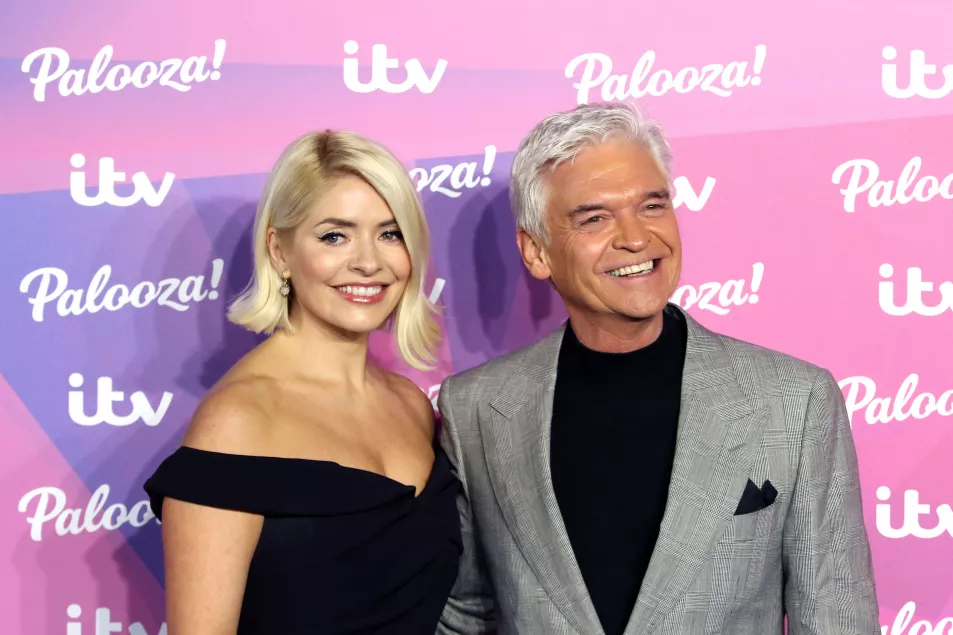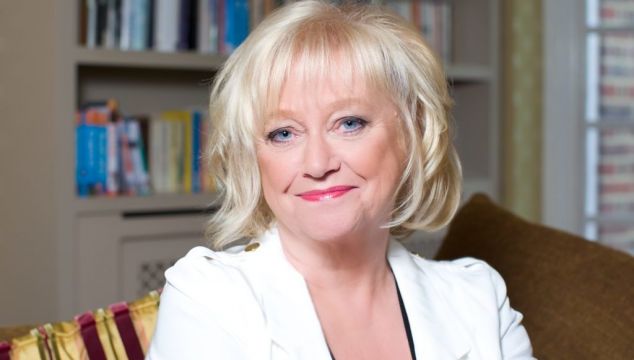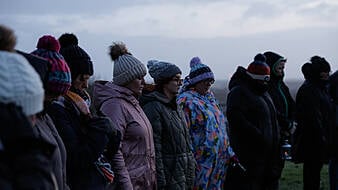Judy Finnigan, TV presenter-turned-author, one half of ITV This Morning’s former dynamic duo, Richard and Judy, and creator of the synonymous Book Club, is pondering over the show’s future, with the departure of both Holly Willoughby and Phillip Schofield.
“I’ll be absolutely straight. I did not recognise the world that people were saying This Morning had become when all that happened and Phillip left,” she says, referring to employees’ claims of a toxic culture at the programme. “It simply wasn’t like that when we were there.”
“I couldn’t understand why Phillip had to go,” Finnigan continues, saying she sent him a couple of emails after he quit “just telling him to keep his chin up and wishing him luck”.

Many of us remember husband-and-wife team Richard Madeley and Judy Finnigan in their prime, him being the fast-talking interviewer who sometimes put his foot in it, she the calmer, more measured character who could gently encourage reluctant guests to come out of their shell.
It was TV marriage gold when snippets of their everyday life seeped into the show, Judy sometimes tutting irritably at some of Richard’s less tactful comments.
Finnigan, now 75, was a trailblazer for women on TV and beyond, becoming synonymous with discovering and championing fiction through the Richard & Judy Book Club.
She was the first female news reporter at Anglia Television in the Seventies. “I suppose I blazed a trail in Norfolk,” she chuckles.
Today, she’s a bestselling novelist – her latest book Roseland, a sequel to her first, Eloise, is a family saga set in Cornwall, exploring family dynamics and fractured relationships.
Set 10 years after Eloise’s death, it finds her children, grandchildren and best friend gathering for the wedding of her true love, Jack, to a young TV location scout of whom they are all suspicious.
Finnigan, who divides her time between her homes in London and Cornwall, loves the world of books and says she’s completely finished with TV. “I’ve got absolutely no interest in it at all now. I mean, it was a fabulous career, I loved it. Well, I loved most of it. And it was fascinating. I met some amazing people and it was well-paid.
“But I did it for 30-odd years and the kind of TV I was doing was full-on, it was live and it completely sucks up your life. As a mother, I just got fed up of it. I wanted my own life instead of one that needed me to be in a studio at seven o’clock in the morning.”
She believes there is a future for This Morning, depending on who is chosen to present it long-term. Various presenters filling the sofa since Willoughby’s departure include Cat Deeley, Rylan Clark, Craig Doyle and Alison Hammond.
View this post on Instagram
“When Richard and I left, people used to say, ‘Oh, it won’t work anymore’, because we were so synonymous with it.”
But when Fern Britton and Schofield became its presenting duo, followed by Willoughby, it hung on, she recalls.
“If they get the right presenters, the right atmosphere, which is crucial, if it’s relaxed and warm and there is still an audience out there for it, it will go on for as long as it can.”

When Richard and Judy became household names – they hosted the show from 1988 to 2001 – latterly Finnigan became unwitting fodder for the paparazzi, sometimes appearing in unflattering photos on the front of women’s magazines.
“They were always an irritant, and social media hadn’t got going when I left. It must be awful. Other women in television tell me that the worst thing about the job now is social media, that they get incredibly unpleasant feedback.”
She adds that these days unkind comments come from “a caucus of incredibly unpleasant negative people who seem to spend their lives saying nasty things about people they don’t know”.
“On TV it’s much worse for women, because of what women have to go through, on what they’re wearing and what they look like, and in a way it’s much worse for them than it is for men. It must be hell, actually.”

Appearance has become more important since she left TV, she agrees.
“In daily programmes, everybody looks more glossy and made-up. There’s a huge interest in clothes, which there wasn’t so much before, although you had to look decent.”
She’s been married to Madeley, who is eight years her junior, for 37 years and he’s still on TV, presenting Good Morning Britain, but Finnigan only watches him if there’s a particular interview he wants her opinion on.
Daytime TV tends to be more entertainment-based now then when she was on it, she observes.
“I don’t know how many people watch This Morning now, but the image it presents is much more showbizzy than when we did it, and I suppose much more frivolous. But then, presumably programmes get feedback and that’s what their audience wants. I’m not sure how many people even watch the news anymore.”
With a background in TV news, Finnigan says she encountered sexism in the industry.
“There was certainly sexism when I started working on This Morning,” she recalls. “The assumption was that because Richard was the man, he was more suitable to deliver a serious newsflash. It made me laugh but it also made me furious. We fought a lot of that.”
Madeley would frequently be assigned the more serious interviews, while Finnigan would be tasked with the softer, domestic ones.
“But because we had each other’s backs, we soon stopped that. We made the programme 100% equal.”
She believes that it’s probably still harder for women who are working on serious news programmes.
“Men are still seen as being more authoritative, more dominant. It doesn’t mean they are any better than the women. Women often have a much more original mind and can assess people in a different and better way than men can.”
These days, Finnigan is enjoying her wider family, the grandchildren, writing books and the more relaxed pace that retirement from TV brings.
Her daughter, personal trainer and TV presenter Chloe Madeley, recently split from husband, former England rugby player James Haskell, and it’s a subject that’s off-limits in today’s interview.
“I appreciate what you’re asking. But I’m not going to talk about Chloe, except to say that she is fine. She’s good. It’s not something I’m prepared to talk about, because it’s not my business.”
Finnigan guards her brood like a lioness protects her cubs and it seems that her blended family – she has twins, Dan and Tom, from her first marriage, and Jack and Chloe from her marriage to Madeley – remain close.
“I absolutely love having grandchildren,” she beams. Having a growing family – her son Jack’s daughter Wren is just a few weeks old – has made her feel quite tribal, she muses.
“You become aware of the connection in your family, the DNA, and how it reproduces itself. When we are all together, say around Christmas at the table, it’s an extraordinary feeling, like beyond your lives, it’s something you’ve helped to create and you feel incredibly, ridiculously proud. Becoming a grandparent feels like a great sense of achievement.”
She is mindful of her own health, given she wants to see the grandchildren grow up.
“Getting older is strange. It’s feeling that your horizons are creeping towards you. You become aware that what you want to be doing, you should be doing now.”
Roseland by Judy Finnigan is published by Sphere. Available now.







